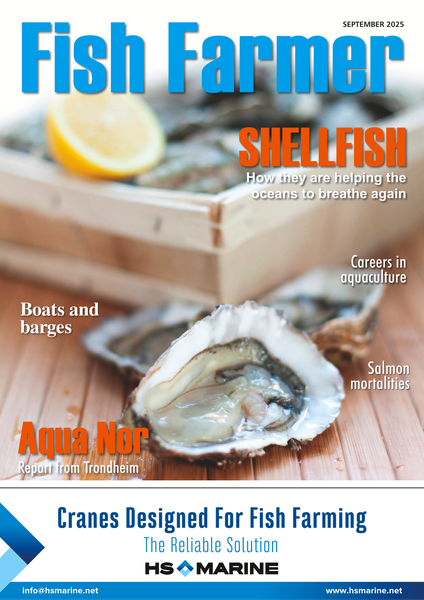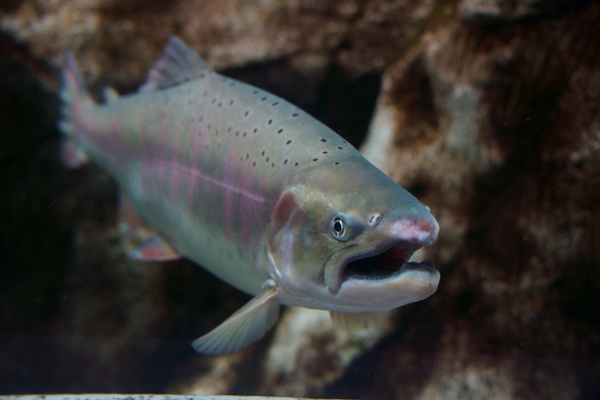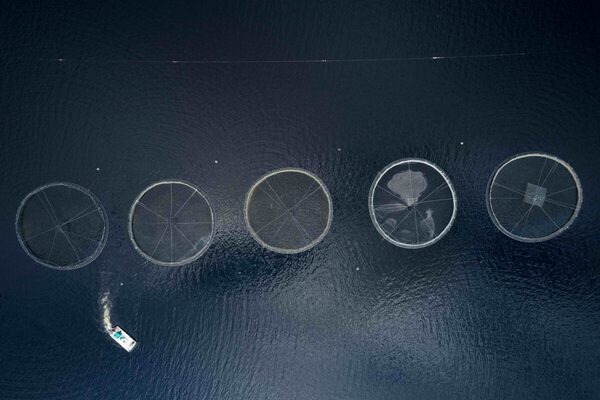Many faces of fish farming
Sandy Neil looks at how people have made successful careers in aquaculture, in some of the most beautiful corners of Scotland.
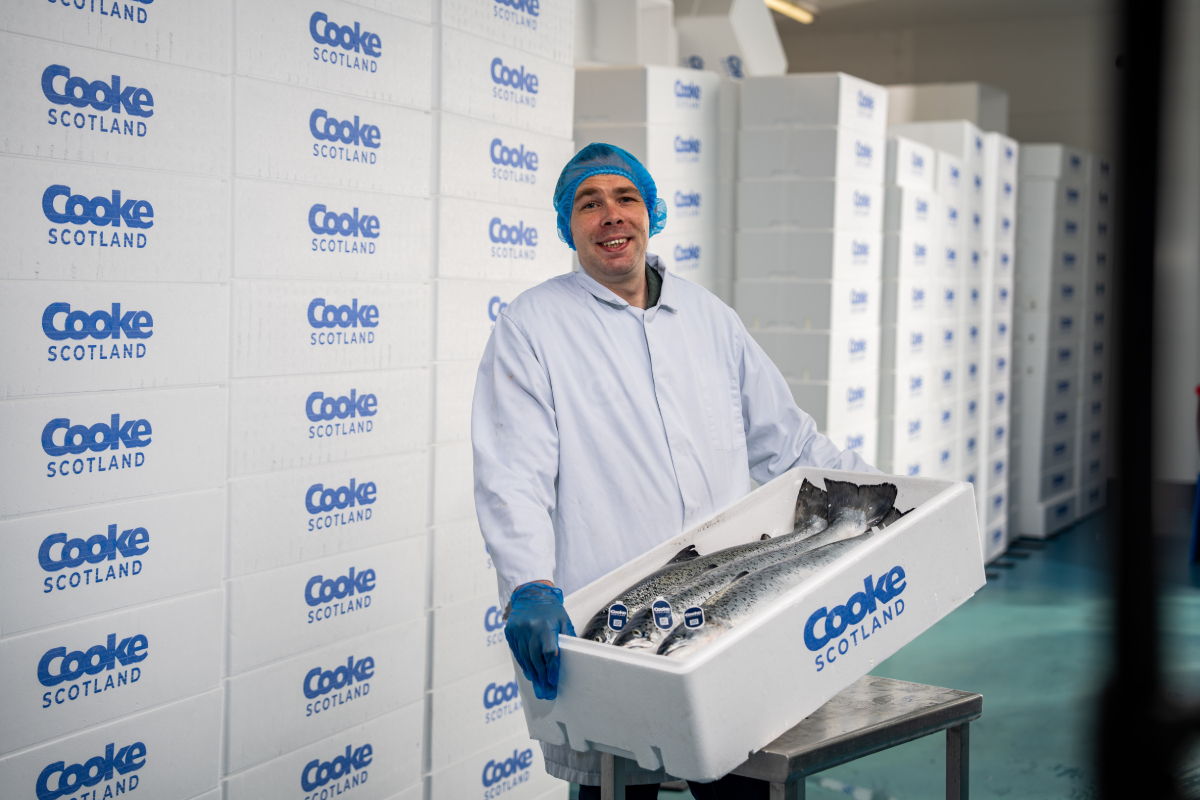
Michael Lewington, Orkney Processing Manager, Cooke Scotland
What does your current role entail?
My role is to oversee the production of our Scottish salmon located in Kirkwall, Orkney, and manage a team of 40 to ensure that we are processing our product safely, efficiently and to a very high standard for our customers. I am responsible for working with others to develop projects and improvements to our process, engaging in audits and site tours for our customers, and ensuring hygiene practices are monitored and kept to a very high standard.
What’s great about it? What’s challenging?
The best part is the team I get to work with. We have a fantastic array of talented people at the factory and I enjoy working with them. The challenges we face are day-to-day variations in the production runs as all fish vary slightly for each harvest, so adjustments are required to ensure production is as efficient as possible.
How did you get here – what was your route into aquaculture and this job?
I left school at 16 in 2010. I didn’t have much ambition as I didn’t quite know what it was I wanted to do. I then started at the processing factory for a two-week trial, after that I was offered a role on the processing team. The 15 years I have been here I have gone from being on the processing floor to supervising and then to managing where I am currently. I do regret leaving learning without much but I don’t regret where I am now. Over the years I have spent with Cooke Scotland they have invested a great deal in me to help me get to where I am now and I couldn’t be more grateful for that. Not only has Cooke put me through many courses and provided the resources to aid my learning and development, but working with so many others and learning from their extensive knowledge is also a large factor.
What if anything has surprised you about working in aquaculture? Is the reality different from what people outside the industry think it is?
I would say it has to be the amount of people that it actually takes to make Cooke Scotland such a successful business
Although it may sound like quite a streamlined process in what our company does in terms of growing our salmon, harvesting, processing and selling, it is not quite that simple. Around 20% of the business works in the processing phase which just shows how many other hardworking people are required for the business to operate efficiently.
What would your advice be for someone looking to follow a similar career route?
These things take time. The goal may seem so far away today, but stick at it and before you know it you will be looking back - proud of yourself and what you have achieved.
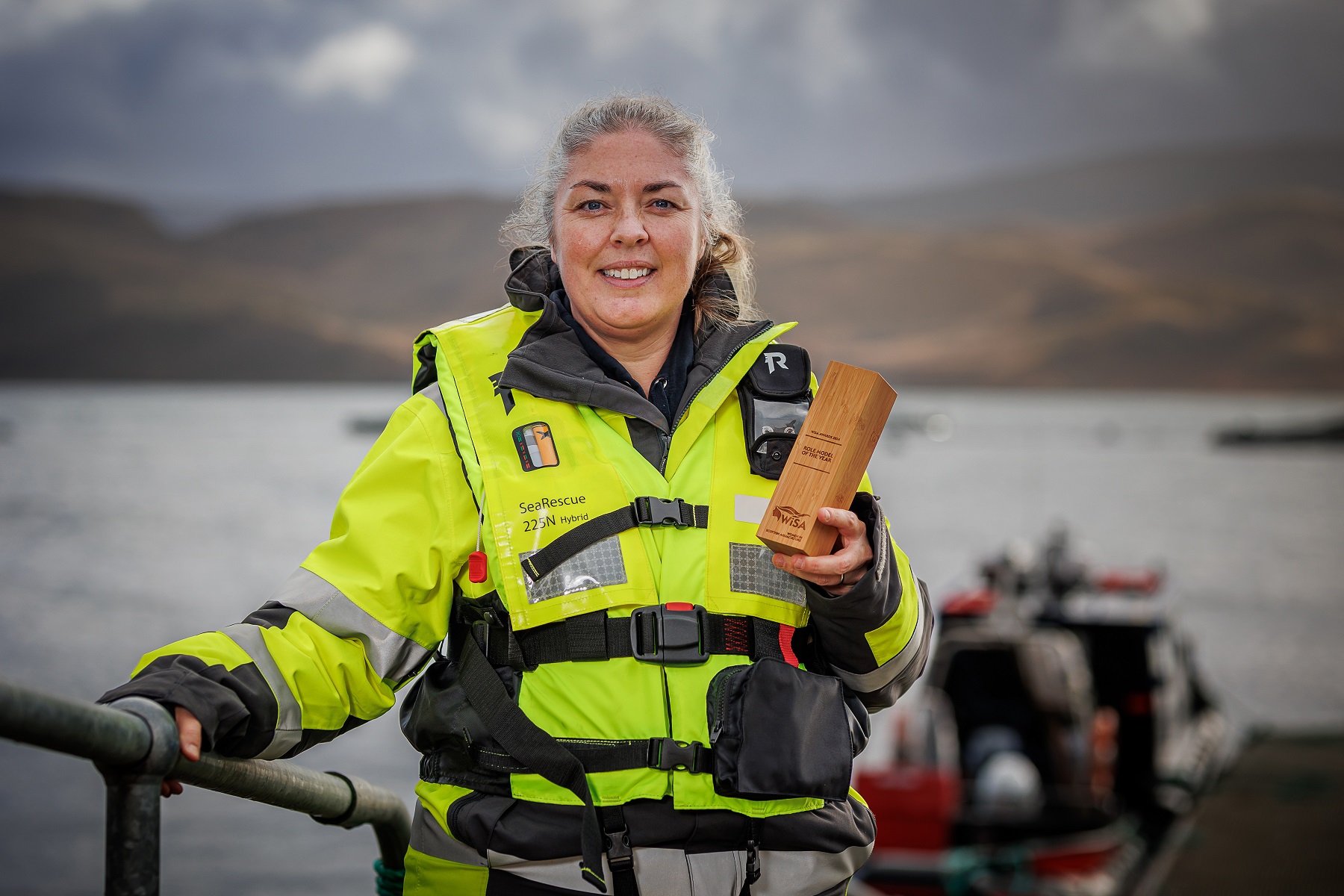
Kimberley McKinnell, Director of Biology, Bakkafrost
What does your current role entail?
I am currently the Director of Biology for Bakkafrost Scotland. The primary function of my role is to manage the health and welfare of our farmed fish in all production stages.
What’s great about it? What’s challenging?
I work with a small team of very dedicated biologists, and they really make this role great. All of them have the best interests of our fish at heart, and when faced with a challenge will try to find solutions to improve the situation for the fish. At the moment, the most challenging part of the role is dealing with a changing environment. From high water temperatures to harmful blooms, nature has thrown us a few new things to deal with and come up with mitigations and strategies for.
How did you get here – what was your route into aquaculture and this job?
I studied marine biology at Aberdeen University, and didn’t know a lot about aquaculture when I graduated. I did some internships abroad and was actually interested in conservation, but jobs within this field are like gold dust. When I returned home I applied for a fish health inspector job in Aberdeen, and this was my first step into aquaculture. This job was great for getting a taste of what the industry was about, visiting farms and understanding some of the issues faced. A few years in, I applied for a senior biologist role with Scottish Salmon Company, not believing I had the credentials to get the job, but putting my interest out there – and I got it! The rest is history – I have been with SSC, now Bakkafrost, for nearly 10 years. I was promoted to Head of Health in 2023, and to Director earlier in 2025.
What if anything has surprised you about working in aquaculture? Is the reality different from what people outside the industry think it is?
There are lots of things that I found surprising when I got involved in the industry! The main thing is the amount of technology and innovation that is utilised. Also, there is sometimes quite a negative view of our industry, with quite outdated views on how we farm our fish. In reality, this is very different – we are constantly evolving, we have committed staff who care about their fish, and while we have challenges we are constantly trying to find solutions – we don’t just sit on our hands.
What would your advice be for someone looking to follow a similar career route?
I would advise getting to know the industry first. Maybe take a role as an operative or a support function to get a flavour of what the industry is about. Always be humble – you won’t know everything and you should always be keen to learn from others.
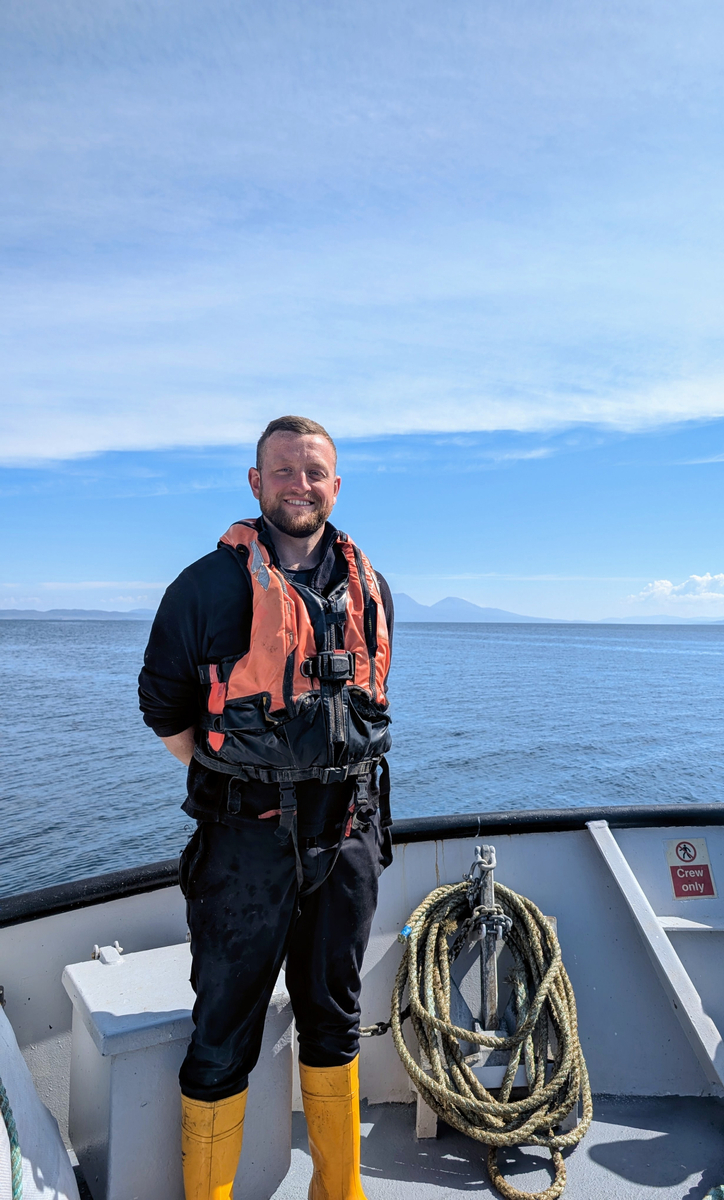
Joe Summers, Skipper and Fish Health Observer on Colonsay, Mowi
What has been your career journey?
I started off as an untrained farm technician (a proper greenhorn) six years ago and picked up the health observer role shortly after starting as it was an area of the job that I had a very keen interest in from the start. I then worked through all my tickets to become a skipper after four and a half years.
What do you like most about your job?
I enjoy the fact that there are so many new challenges in the location I work and that no two days are the same. I enjoy being able to come up with ideas for new ways of doing things and having the cooperation of my colleagues to put an idea into practice to make our job more efficient and effective.
What do you think would surprise people the most about aquaculture?
I think people would be surprised about the various outreach programmes the industry and Mowi are involved in. There are so many things going on in the company behind the scenes that many people don’t see, such as the housing development schemes on Colonsay where I work and supporting local communities with funding for festivals, shinty, golf, etc. This is sometimes overlooked as people just see the latter side of the aquaculture industry.
What advice would you give someone wishing to make a career in aquaculture?
I would say: “Don’t hesitate, there are so many great departments to work in throughout the industry.”
I threw myself in at the deep end at an exposed farm site and haven’t looked back since.
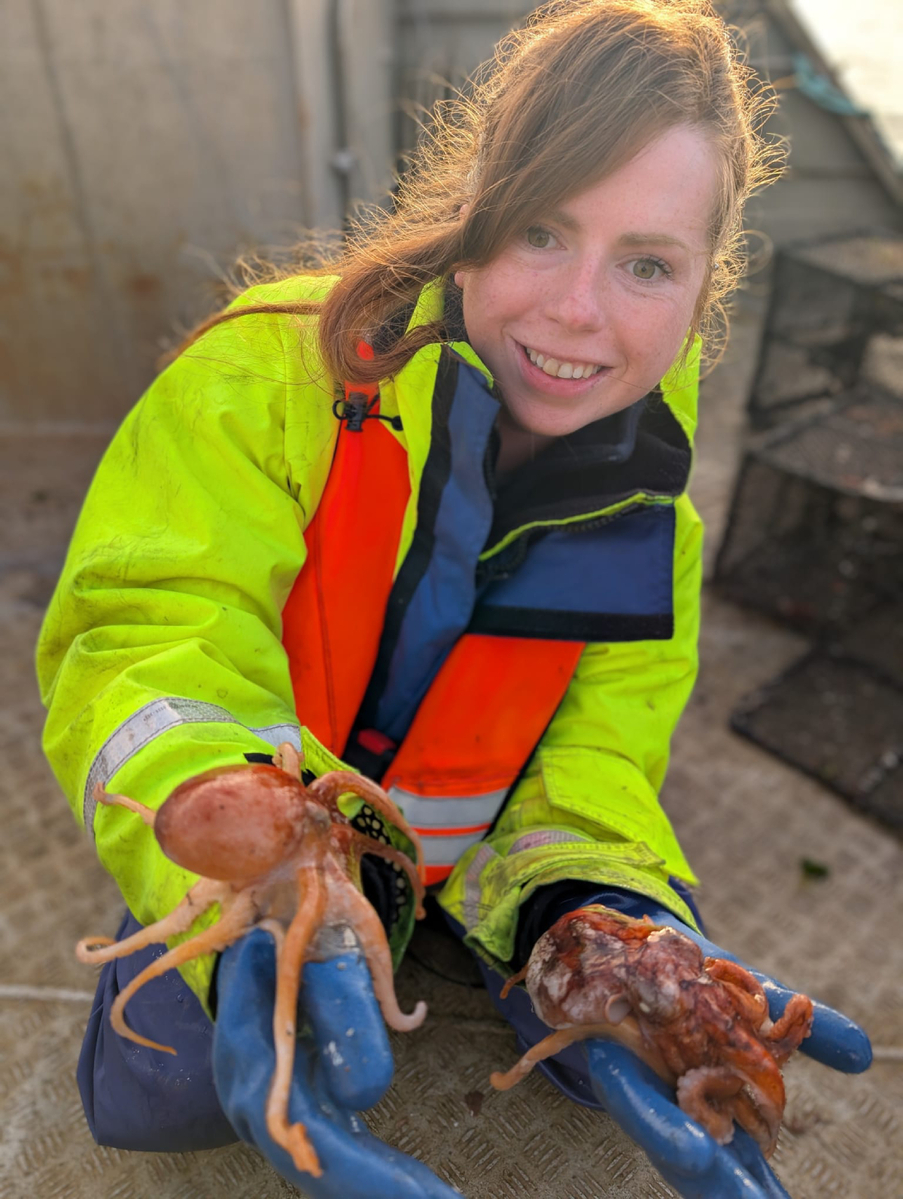
Claire Anderson, Fish Husbandry Operator, Kames
What does your current role entail?
I’m a Fish Husbandry Operator with Kames Fish Farming at our site in Loch Pooltiel, Isle of Skye. A large part of my role is focused on fish health and environmental monitoring. Each morning I carry out water sampling and identify plankton species under the microscope to ensure conditions are optimal for our trout. I also conduct regular health checks on the fish, monitoring gills, fins and general wellbeing. Beyond that, I operate workboats and machinery such as cranes and capstans, and I’m involved in larger site operations like grading and harvesting. It’s a role that’s very hands-on and varied, and no two days are the same.
What’s great about it? What’s challenging?
The best part of my job is being out on the water every day, surrounded by nature. I regularly see whales, dolphins, and migratory birds, and I’m constantly reminded of the biodiversity around us – from microscopic plankton right through to large marine mammals. That connection to the natural environment is something I really value. On the other hand, the unpredictable Scottish weather and the remoteness of the site location can make things challenging. The team often has to adapt quickly to keep operations running smoothly despite those conditions.
How did you get here – what was your route into aquaculture and this job?
My background is in marine biology, and I originally came to Skye to work a summer season on a tour boat. I quickly fell in love with the island and decided to stay. When I saw the opportunity to join Kames Fish Farming, I realised it was the perfect way to combine my academic background with a practical, hands-on role at sea. It felt like a natural step to move into aquaculture, where I could apply my skills and passion for marine life in a meaningful way.
What if anything has surprised you about working in aquaculture? Is the reality different from what people outside the industry think it is?
Yes, absolutely. Before I joined the industry, I’d mostly heard the negative perceptions that many people outside aquaculture have. But once I started working in fish farming, I quickly realised that the reality is very different. Fish welfare and environmental stewardship are taken extremely seriously, with strict regulations in place and consistently followed. From the inside, you see just how much care goes into looking after the fish and the surrounding environment. It’s a far more positive, responsible and rewarding industry than many people imagine.
What would your advice be for someone looking to follow a similar career route?
I’d say don’t be put off if you don’t know everything about aquaculture to begin with – there’s so much you learn on the job. If you’ve got an interest in the marine environment and enjoy working outdoors in all weathers, it can be a really rewarding career. For me, it’s been a brilliant way to put my passion for marine biology into practice while also playing a part in sustainable food production.
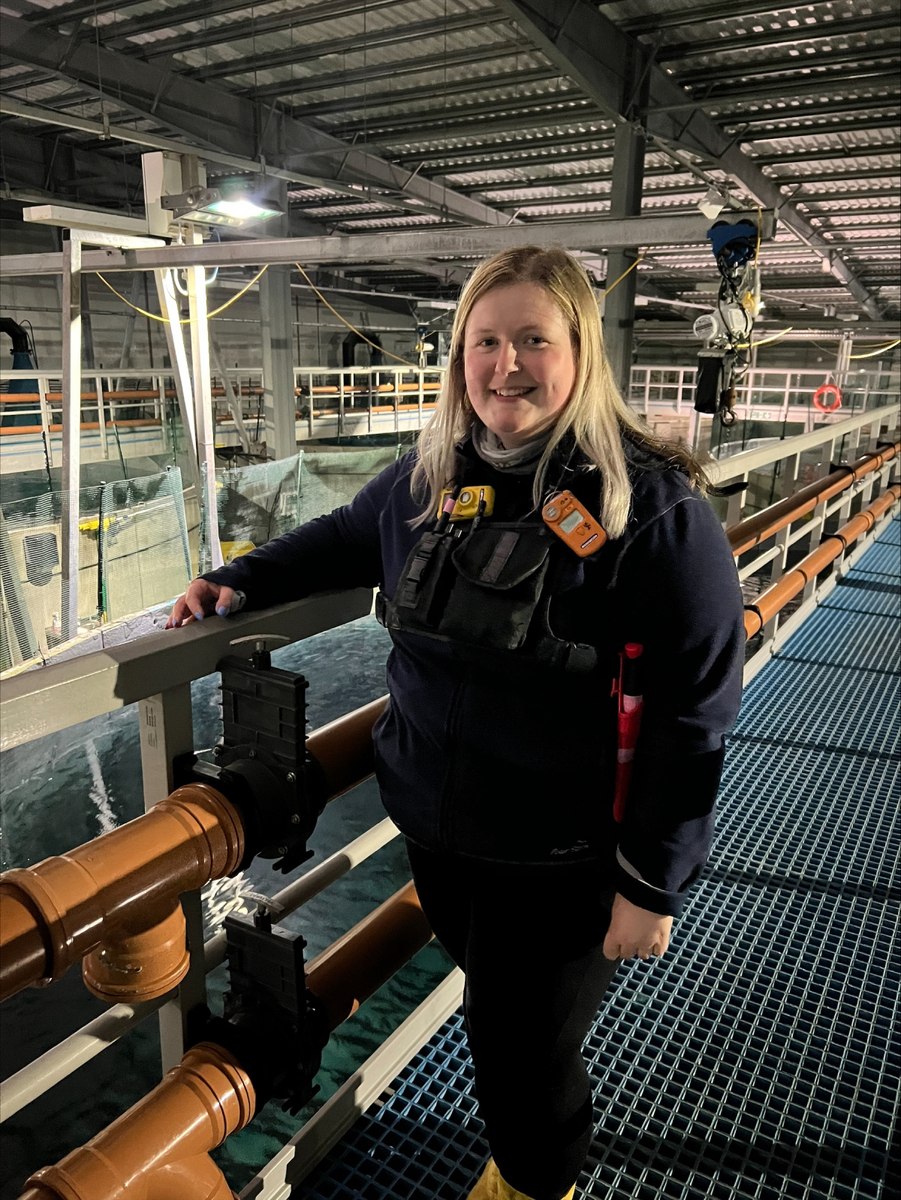
Shannon Graham, Assistant Manager at Lochailort Recirculation Unit, Mowi
What is your career journey?
I first joined Mowi in July 2019 on the graduate management trainee programme. Here, I gained lots of experience from different areas of the company. I started off in Lochailort Hatchery for three months then moved onto work at Glenfinnan for another three months. From there I followed the fish as they were transported from Glenfinnan to Gorsten.
I ended up at Gorsten for around a year thanks to lockdown and then eventually got some experience at Craobh Haven where I was involved with treatments and harvests. I returned to Gorsten in December 2020, where I was involved with further harvesting and grading processes. In April 2021, I started in my current position as Assistant Manager at Lochailort Recirculation Unit.
What do you like most about your job?
As most fish farmers say – no two days are the same! Specific to Lochailort; I enjoy the egg incubation and first feeding tasks. First feeding is so important for the future of that population, and I enjoy spending time finding out and learning the fish behaviour – every batch is different!
What do you think would surprise people the most about aquaculture?
I think it’s hard for some people to imagine that we use ultrasound machines and software for splitting the males and females of our broodstock. Also, having the infrastructure to vaccinate up to 18,000 fish an hour surprises a lot of people we welcome on site here.
What advice would you give someone wishing to make a career in aquaculture?
I would encourage people to just go for it! If you start a specific career in aquaculture and it’s not what you thought you signed up for then there are so many different career paths you can go down, from planning, finance and environmental to fish health, logistics and boat handling!
Why not try these links to see what our Fish Farmer AI can tell you.
(Please note this is an experimental service)
